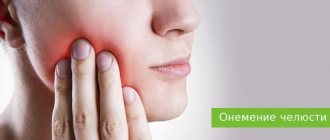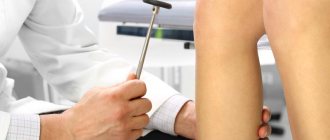Researchers from the University of Bristol studied the reaction of rats to tickling. They found a way to accurately measure the emotions of rodents and noticed that some of them squeaked during this procedure. Tests have shown that the pitch of the squeak is directly proportional to the level of pleasure the rat experiences when tickled. This once again proves that tickling is an ancient mechanism inherited by humans from distant ancestors.
Our body constantly “talks” to us in the language of signals. We'll tell you why evolution came up with some physiological mechanisms and what meaning it put into them.
Tickling
There are different versions of why nature has endowed us with the ability to laugh when tickled, as well as to be afraid of it. One hypothesis is that it signaled to our ancestors about insects crawling on the skin that could be parasites. Hence the fear of tickling, familiar to many of us.
But then it is not clear why tickling causes laughter. Is this a normal reaction to insects crawling on your body? Therefore, other scientists adhere to a different version: tickling is needed to establish contact between the cub and its mother. With its help, without having absolutely anything at hand (or paw), they can play, have fun and get positive emotions. This version is also supported by the fact that with age we stop responding to tickling with laughter. On the contrary, many people find it unpleasant.
It's ticklish! What makes you laugh? More details
There is an opinion that in previous centuries tickling was used as torture and could bring a person to death. “Most likely, these are fictions and horror stories,” says physiologist, candidate of medical sciences Nikolai Zakharov .
“You can’t tickle a person to death.” The body adapts to the tickling: you either stop feeling it or temporarily lose consciousness.”
How not to be afraid of tickling
“Resistance” to tickling can be developed by reducing the sensitivity of nerve endings. But such an effect is achievable through long-term training, as experts say. To do this, when you are tickled, try to relax your muscles as much as possible. It’s a little difficult, of course, but they say that over time the reaction to tickling will decrease. By the way, with age, nerve endings become less sensitive, and, therefore, tickling is easier to tolerate.
You can use a trick. Place your hand on top of the tickler's hand - this way your brain can begin to perceive the other person's touch as your own. This deceptive technique is used during an ultrasound procedure, which can also cause tickling.
Goosebumps
They cover us from the cold. But it happens that their appearance is caused by some event colored by strong emotions - someone’s action, a movie seen, music listened to...
This mechanism, which in the language of science is called piloerection, and in common parlance - “goose bumps”, also came to us from primitive people, and to them from their mammalian ancestors. Goose bumps on the surface of the body are caused by the contraction of tiny muscles in the skin. They raise the hair when freezing so that the heated air lingers longer near the body and does not fly away into the surrounding space.
"Goose pimples". Why do goosebumps appear and run all over your body? Read more
The same reflex is triggered in a situation of danger: raised hair makes the animal (look at a cat when it meets a dog) more massive, giving it a frightening appearance. With strong emotional reactions - rage, fear, delight - our nervous system is excited, and this can lead to goosebumps. If we had wool, it would stand on end at that moment.
Piloerection has lost its practical meaning for humans, turning into a rudiment, like some organs of our body - the coccyx, the appendix. After all, Homo sapiens long ago lost their thick coat of fur, and invented clothing to protect them from the cold.
What can tickling lead to?
The most common reaction of the body to tickling is a smile and hysterical laughter. Sometimes the emotional state is so affected by the irritant that tears may appear. There are other signs that should be noticed promptly. You should consult a doctor if tickling causes:
- dizziness;
- pain in the area where the stimulus acts;
- uncontrolled urination;
- hiccups
Prolonged tickling can be fatal. It has been proven that prolonged active action of the irritant can cause muscle spasms and suffocation. Death from tickling is possible.
Help from a psychologist for pteronophobia
Shiver
This mechanism is similar to the one that causes goosebumps. When a person is cold or scared, he begins to tremble. Why?
Warm-blooded animals, and we are one of them, have a very important physiological ability - to maintain body temperature at a constant level. Trembling your muscles is one way to avoid heat loss and a drop in temperature when it suddenly gets cold. Skeletal muscles begin to make small and frequent contractions, which release heat that spreads throughout the body.
“The brain runs on one battery.” What our scientists found in the human head Read more
“When a person is scared, he also begins to tremble. This way we strengthen the functioning of the nervous system, including the autonomic one. All organs and internal systems are tuned to actions related to salvation - either an attack on the enemy, or a swift escape,” explains the scientific secretary of the Institute of Physiology. I. P. Pavlova RAS, candidate of biological sciences Alexander Chuikin .
It is noteworthy that muscle contractions are sometimes used by cold-blooded animals: insects, fish, and reptiles. For example, bees and bumblebees warm their hives and nests due to the intensive work of their wings. They do this to prevent the developing larvae from getting cold.
Causes of tickling in the chest
Several different disorders can cause chest tickling
Chest tickling can be caused by conditions that do not pose a serious problem.
Colds and hay fever, also called hay fever, can cause a tickling sensation in the chest or throat. With such problems, the symptom in question occurs quite often, and in most cases it goes away within a few days. People in such situations require minimal treatment, and some do without treatment at all.
Other cold symptoms include the following:
- rhinorrhea or nasal congestion;
- fatigue;
- cough;
- sneeze;
- headache;
- aching muscle pain;
- increased body temperature;
- sore throat.
Other symptoms of hay fever include the following:
- cough;
- sneeze;
- rhinorrhea or runny nose;
- itching in the throat, mouth, or nose;
- aching muscle pain
- headache
- fatigue;
- irritated and red eyes.
In some cases, chest tickling indicates more serious medical conditions, such as those listed below. Such diseases require longer treatment.
Bronchitis
Bronchitis is characterized by inflammation of the airways through which air moves in and out of the lungs.
This condition often develops after infections cause high volumes of mucus to be produced in the airways. Microorganisms that lead to colds and flu often cause bronchitis.
A buildup of mucus in the airways can cause tickling. The body reacts to this feeling by secreting mucus during coughing.
Other symptoms of bronchitis include the following:
- sore throat;
- cough;
- fatigue;
- aching muscle pain;
- rhinorrhea or nasal congestion;
- headache.
Asthma
Shortness of breath and wheezing often occur with asthma
Asthma is a common medical condition that affects the lungs and affects people throughout their lives. This disease is characterized by narrowing of the airways, which leads to difficulty breathing. Asthma can develop at any age, but people most often begin to notice it in childhood.
Other symptoms of asthma include the following:
- dyspnea;
- cough;
- whistling sounds when breathing;
- feeling of tightness in the chest.
Irregular heartbeats
Irregular heartbeats or arrhythmia is a condition in which the heart beats abnormally. A sign of this condition may be a tickling sensation in the chest.
Arrhythmia occurs in many people. It often does not lead to serious consequences, but in some cases it is a dangerous sign that poses a threat to health.
The main symptoms of arrhythmia are single premature heartbeats or a flurry of rapid heartbeats, which can lead to a fluttering feeling in the chest or neck.
Cry
The practical benefits of tears are well known to physiologists and ophthalmologists. They moisten the cornea of our eye and thereby protect it from foreign objects (for example, from an eyelash falling into the eye), as well as from drying out, infections, and caustic volatile substances. And thus improve the quality of vision. For example, if a speck or eyelash gets into the eye, the tears will wash it away.
Cry, girl! What are the benefits of tear therapy? More details
All land animals have lacrimal glands, which constantly produce a fluid of complex composition. By the way, the chemical compositions of blood and tear fluid are close. Roughly speaking, it is a derivative of blood and also contains several types of salts. And the most useful substance found in our tears is lysozyme. It can kill many microbes and provide disinfection of the eye membranes.
However, why do people cry when they have a strong emotional reaction - grief, fear, compassion, as well as great joy? Scientists are still arguing about the reasons. There are two versions here, and perhaps both are correct. Firstly, crying gives a signal to other people that you feel bad and need help or sympathy. Because Homo sapiens are more socially connected than anyone else in the animal kingdom, empathy and compassion are very important from an evolutionary perspective. Neuroscientists conducted an experiment: they asked photographs to determine the degree of sadness of crying people, while in some photographs the tears were removed using Photoshop. People who had tears removed from their faces seemed less sad to the subjects.
The second hypothesis: tears help the crying person cope with emotional stress and alleviate grief. After all, stress hormones leave the body along with them. Therefore, after crying, we feel relieved.
“Male and female are different.” Neuroscientist on the secrets of the human brain Read more
What happens when a person tickles himself
Aristotle also said that it is impossible to tickle yourself. Later, all his assumptions were confirmed by research. This is impossible due to the way the cerebellum works. The body manages to understand where the tactile influence came from, and the person realizes that there is no visible danger nearby. This is why we are only afraid of being tickled when someone else does it.
It is important to note that in people with disorders of the cerebellum, this reaction does not occur, as a result of which they can tickle themselves and even react to this with laughter. In addition, people suffering from schizophrenia are highly sensitive to their own touch.
This happens because it seems to them that another person is controlling the movements of their hands.
Due to the fact that some patients are highly susceptible to tickling, British oncologists have developed a special method of examination using fingers.
So, first, the doctor touches with his fingers the area of the patient’s body that needs to be examined. The patient then places his hand over the doctor's fingers. Next, the doctor places his second hand on the patient’s hand and begins to control the process. At the same time, the patient’s brain believes that another person is not interfering in the examination, which means that there is no danger in touching the body. Therefore, to reduce sensitivity to tickling, you can simply place your hand on top of the toucher's hand.
Strong-willed and psychologically stable individuals can even stop the laughter reaction. To do this, it is enough for them to imagine that they are tickling themselves.
Hiccups
Our main breathing muscle is called the diaphragm. Hiccups arise from the fact that spasms appear in it and, with sudden contractions, strong convulsive breaths occur. This is the mechanism, but the cause of hiccups is not completely clear.
“One version is a pinched vagus nerve. It passes from the chest to the abdominal cavity, closely adjacent to the esophagus. When we eat hastily, quickly filling the stomach, the vagus nerve is pressed and irritated, says physiologist, candidate of medical sciences Nina Alekseeva. - The same effect is possible if we take a sharp breath from cold or fear. The body reacts quickly to compression of the nerve: it gives a signal to the central nervous system, and it begins to contract the diaphragm in order to free the vagus nerve, on which the functioning of many of our organs depends. That is, hiccups are such a defense mechanism.”
Hiccups may be a legacy of the very ancient ancestors of humanity, who breathed through gills, some scientists believe. They suggest that there are connections left in the ancient cortex of our brain that are responsible for pushing water out of the gills. An analogy has been noted between hiccups and ventilation in tadpoles.
Hypotheses about the nature of tickling
- Tickling is a reflex reaction of human skin to small animals and insects, which has not disappeared with the evolution of the species. American popular science writer I. Johnson believes that tickling is perceived by the skin and transmitted to the brain as a threat signal. Mrs. Johnson explains laughter during tickling by saying that “when the momentary fear passes and the person realizes that there is no threat, he bursts into nervous laughter with relief.” The stronger the tickling, the greater the fear and the stronger the laughter.
- Tickling is a built-in “good mood generator.” Its task is to stimulate the body’s internal resources, which begin to work more actively, replenishing the blood with various substances. Thus, tickling stabilizes mental instability, increases immunity, and charges a person’s emotions with positive energy. However, scientists from the University of California have found that tickling may not improve mood: experiments have shown that the convulsive twitching of a person being tickled has nothing to do with fun. By making sounds similar to laughter, a person, without realizing it, shows that this type of influence - tickling - is unpleasant to him and he would like to stop it.
- Tickling is a side effect that occurs during the development of the human nervous system. Focused on all types of stimuli, including contact ones, the central nervous system has acquired a border “zone” between the main types of influence: affection and pain.
The smell of sweat
Each of us has encountered a situation when there is a person nearby whose smell of sweat literally makes us sick. Holding our nose, we think: “How can his loved ones tolerate him? Although what kind of loved ones... Who would live with such a stinker? However, it soon turns out that the person has a spouse, and he (she) does not find this smell unpleasant. How so?
The smell of illness. What does the body smell like with this or that pathology? More details
“A lot of glands that secrete sweat are located in the armpit area. The hair growing there enhances the smell of sweat and concentrates it. This smell has an important biological function. Our ancestors used it to find marriage partners. Nature intended it this way: the more different the genotypes of the parents are, the better for their offspring - they will have a more diverse set of genes, explains Nikolai Zakharov. — Scientists have proven that if a person finds someone else’s smell pleasant, it means that its carrier is suitable for him as a sexual partner according to his genotype. But the repulsive smell says otherwise.”
True, there is an opinion that it is not sweat that a person smells, but the microbes that live in abundance on his body. And sweat, which is almost 100% water, only creates good conditions for their reproduction.
How to get rid of an unpleasant feeling
Doctors say that tickling in the anal area occurs at the initial stage of hemorrhoids. Therefore, by recognizing and diagnosing the pathology in time, you can choose the right treatment and completely get rid of hemorrhoids. To do this, it is necessary to apply a whole range of measures and drugs that complement each other’s effect.
The feeling of tingling and irritation lies deep inside, so ordinary ointments do not provide the desired relief. Rectal suppositories will come to the aid of the patient. They dissolve in the anus and healing substances begin to “work” right at the site of inflammation. For exhausting tickling, a proctologist may recommend:
- Procto Glyvenol;
- Hepatrombin G;
- Aurobin;
- Natalsid;
- Nigepan;
- Anestezol.
If burning and itching have just begun to bother you, the patient does not have bleeding or prolapsed nodes, the doctor may recommend suppositories on a natural basis: with belladonna or calendula extract, with propolis or sea buckthorn oil. At the initial stage, they perfectly strengthen the walls of blood vessels and heal microtraumas on the intestinal mucosa, preventing painful symptoms.
All rectal suppositories are intended rather to alleviate the condition. In order for hemorrhoids to shrink and stop bothering the patient, it is necessary to treat and restore the venous system from the inside. The best way is to use special angioprotectors. This is a whole group of modern drugs, the main purpose of which is the regeneration of blood vessels, their strengthening for normal and stable blood circulation. Among the most popular in domestic proctology are Phlebodia 600, Venarus, Detralex and Troxevasin in capsules. They are taken over a long course of 1 to 3 months. In the future, it is repeated to consolidate the effect twice a year.










